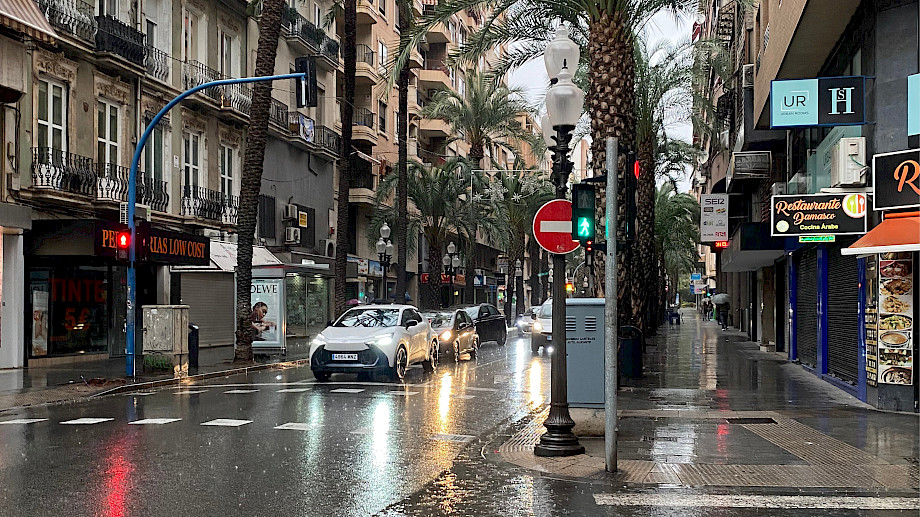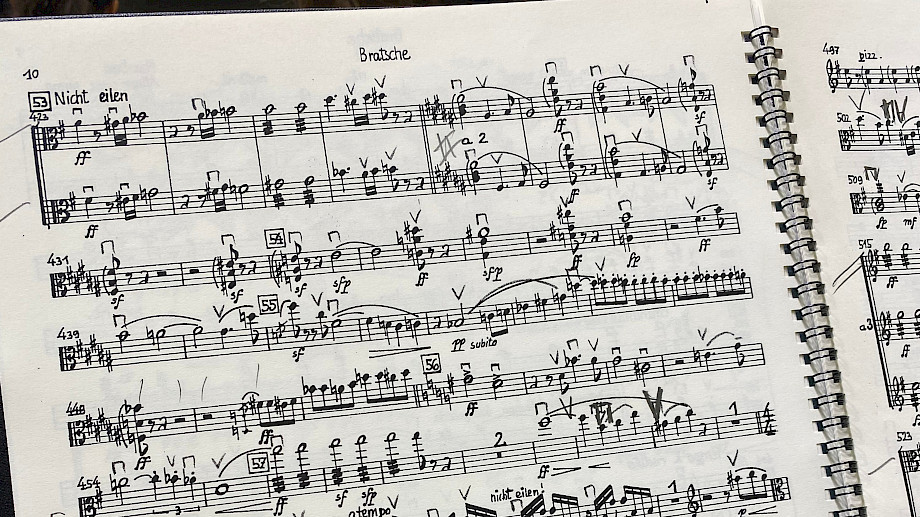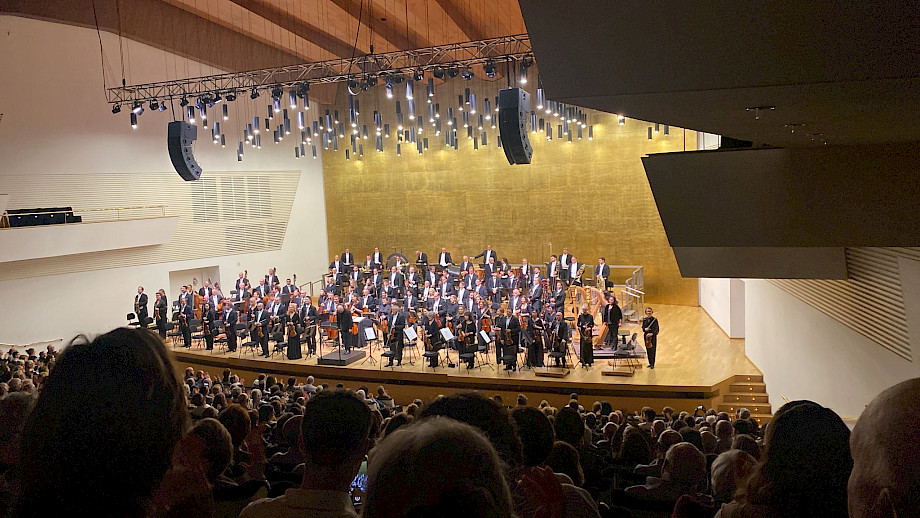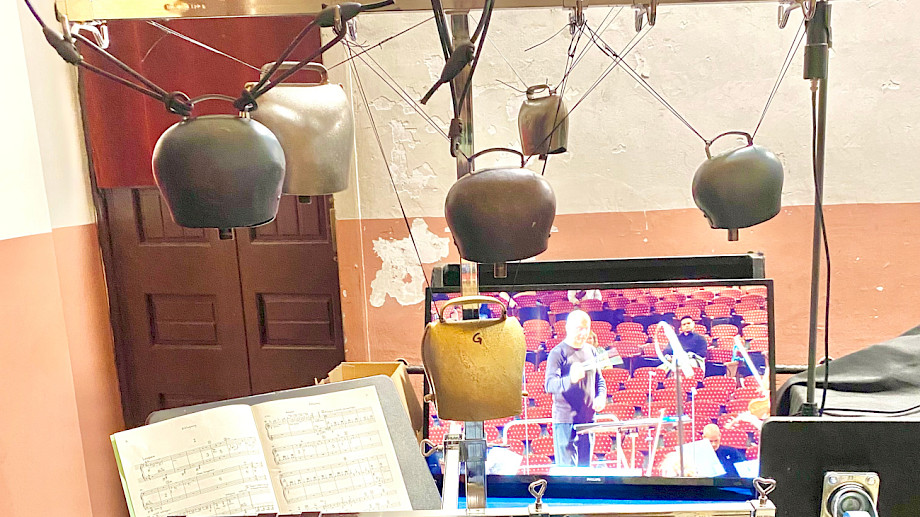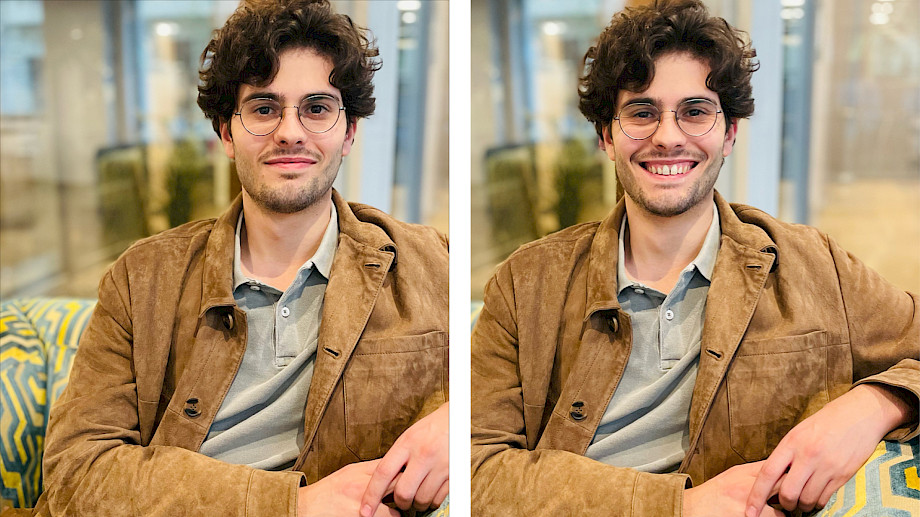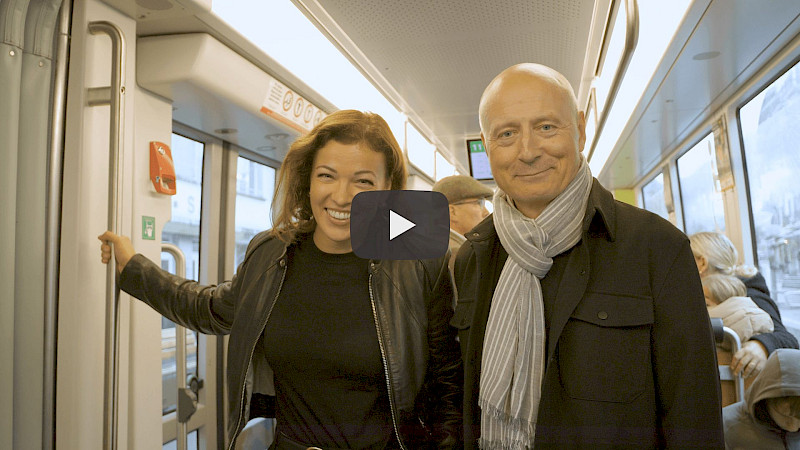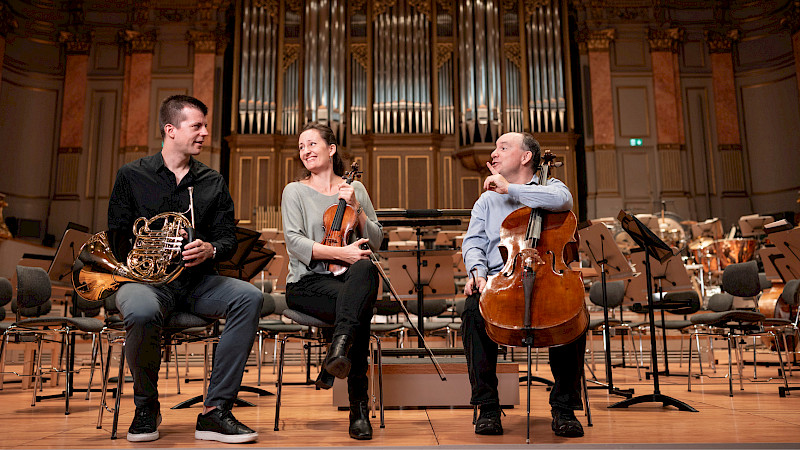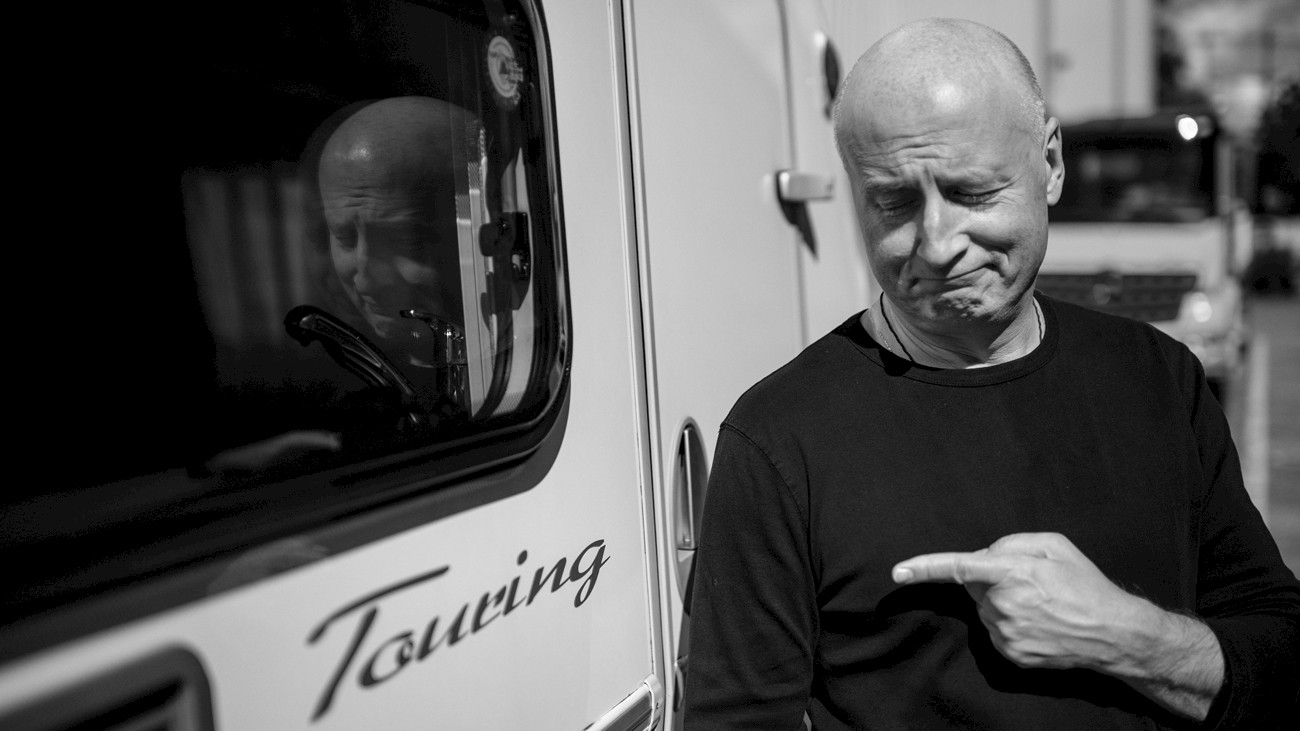
A look back on our Spain tour
From 27 to 31 October 2024, the Tonhalle-Orchester Zürich and Paavo Järvi toured Spain. Find out what we experienced there here in the blog.
Sunday, 27 October 2024 - Alicante
Kicking off in Alicante with Mahler's Symphony No. 7 and weather that only partly matches the clichés: our violist Ursula Sarnthein already has a lot to tell on the first day of the tour.
By the sea, in the sea and above the sea
Fortunately, Spain showed its sunny side when we arrived on Saturday, just as we had imagined. Cheerful orchestra members were spotted by the sea, in the sea, on the palm-fringed esplanade and at the top of the fortress overlooking the sea. But in the hotel corridor you could hear them practising hard as we passed by, because we have Mahler's 7th Symphony with us, and it's a tough one!
The rain in Spain
Haika Lübcke and I were hit by the first drops on Sunday lunchtime at the top of the Santa Barbara fortress - and they were the first of many, many drops that have been raining down on us in very high concentrations ever since. "Hall within walking distance, approx. 12 minutes, 800 metres" is in the tour plan. Not a problem in itself, but today we really got quite wet on the short walk. Our beautiful yellow Tonhalle Orchestra umbrellas have served us well and will apparently have to continue to do so: The Spanish weather service is also reporting heavy rainfall for the next few days - but maybe they're wrong ..
Glasses in the notes
On page 10 of my part (viola) in Mahler's 7th Symphony, I read four key changes with 1 to 5 accidentals, plus all kinds of other accidentals, two changes from viola to treble clef and straight back again, the indication "fortissimo" at least 15 times, "pianissimo" twice, countless sforzatos and a pair of glasses written in pencil to get a tricky tempo change right. And that's just page 10 out of 30; it looks like this on almost all pages - probably in most of the other parts too. A huge orchestral apparatus with, among others, five flutes, four clarinets, oboes and bassoons, two harps - plus herd bells, church bells, a guitar and a mandolin. A huge work. The first concert in Alicante is actually our very first concert with Mahler 7, because we've only rehearsed it in Zurich so far. Mahler 7 doesn't come around that often - and everyone remembers when they played it: I've actually never played it before, which makes it even more exciting ...
We were all highly focussed today and definitely more tense than usual in the unfamiliar but clear, transparent acoustics of the Auditorio with its beautiful golden back wall. It seems to me that we did a good job, the audience applauded.
Tuesday 29.10.2024 - Barcelona
Mahler's Symphony No. 7 has already been mentioned in this blog. But the special performance by percussionist Benjamin Forster deserves a special mention - according to our blogger Ursula Sarnthein.
Cowbells, not goat bells!
The herd bells in Mahler's Symphony No. 7 definitely deserve their own blog entry. On this tour, Benny Forster has the honourable task of playing it backstage to acoustically transport the listener to a mountain pasture with cows and goats. Benny explained to me that this normally involves two people ringing and resetting several bells placed on a table in random lengths and sequences. On the tour, he has to do this alone, and so that he can suggest a decent-sized herd, he has come up with a construction: all the bells hang freely swinging on a frame, and he can simply push them. This also has the advantage that they swing freely on the cow's neck, just like on the mountain pasture. The herd bells include large, deep-sounding cow bells and small, bright-sounding goat bells. Paavo Järvi favours cowbells, Benny told me, he prefers the herd bells to be low.
Yesterday at the concert in Barcelona, Paavo Järvi and we had to smile when he began the herd bells with a particularly energetic-sounding low cowbell. Benny saw the grin too, because he has a large conductor's monitor behind the stage so he knows when to set his herd in motion. Incidentally, he has an important advantage over his colleagues in this job as herd bell ringer: he doesn't have to wear concert clothes and can keep his baseball cap on as he remains incognito backstage.
The herd bells would have fitted in perfectly at Barcelona station today, when the whole procession of 112 people was led through the really long but fortunately empty queue maze to the baggage X-ray. At moments like this, our herd brain switches on and someone is guaranteed to start singing "moo" or "moo" ..
Wednesday 30.10.2024 - Madrid
For one musician, the Spain tour is a home game: violist Héctor Cámara Ruiz comes from Madrid. Michaela Braun, Head of Marketing and Communication and part of the tour of Spain, spoke to him.
Madrid, football and the open Zurich
Real Madrid or Atlético Madrid? Definitely Real, says Héctor Cámara Ruiz. Yes, he suffered after last Saturday's game - Real lost 4:0 in El Clásico. Barcelona dominated the game.
As a child, he often went to the old Bernabeu stadium in Madrid. It had a lot of flair. His father had a season ticket and he was allowed to go along from time to time. The new stadium is very cool, but he still misses the soul.
He is the only musician in his family, "but my father plays the piano incredibly well and often improvises". As children, he and his sister always sang a lot. No holiday trip without singing. Queen, Bruce Springsteen or the Beatles, the music of their parents. It was only as an adult that he realised the quality of this music, "as a child you just sing along."
He loves his home city of Madrid. It is so open, has a good atmosphere, great self-contained neighbourhoods and it is safe. Growing up in his neighbourhood - Arganzuela - was wonderful. The fact that we are in Madrid with the orchestra this week fills him with pride. And anyone visiting Madrid for the first time must have been to the Museo del Prado at least once in their life.
He did his master's degree in Munich. That's also when he started learning German. He spent two years at the BR Orchestra Academy. An exciting time - it was the last few months under Mariss Jansons. The orchestra had an incredible respect for this conductor. Jansons' last concert, at which Héctor was also present, was at Carnegie Hall in New York. It was Brahms' Fourth Symphony. Jansons was still "pure music", "I was deeply impressed by the way he was able to convey a feeling for the meaning of the works to each and every one of us".
Before applying for the position in Zurich, Héctor had a 6-month contract with the BR Orchestra. Why Zurich, we want to know. "The orchestra has a very good reputation and I was very careful with my applications, I didn't just send my documents to all the vacancies." He didn't even know Switzerland back then, he had only been to Basel once. Zurich seems more open to him than he expected - very diverse and very international. He lives with his girlfriend in Zurich Enge: close to the Tonhalle, and there is everything he needs, from the cinema to the café to the lake. The quality of life is enormous. The demands of the German language are also enormous: "It's a challenge, coupled with the dialect, but everyone speaks so many languages in Zurich, it comes so slowly."
He has a part-time contract with the orchestra and has also started teaching in Fribourg. He enjoys passing on what he has learnt. And when he's not making music, he plays in the Tonhalle Orchestra Zurich football team. It's a great camaraderie. When the newcomers are there, there are often up to 18 players.
What he finds unique about Paavo Järvi is how clearly he plays with his hand. No one can do that as well as him.
And now full concentration on the two Madrid concerts. The family is coming too.
Friday, 01 Nov 2024 - Zaragoza
At the end of the tour, violist Ursula Sarnthein looks back on a week that was a special one for the orchestra - and a tragic one for Spain.
Adiós!
The 2024 tour of Spain came to an end yesterday, and we take the memories of exciting musical experiences and wonderful encounters and activities with colleagues and guests with us to autumnal Zurich. We played Prokofiev's Violin Concerto and Shostakovich's Symphony No. 6 for the last time in the Auditorio Zaragoza in front of an audience of almost 2,000.
On 31 October, our path to the Auditorio in Zaragoza - right next to the football stadium - was crossed by many children in costumes looking for Halloween treats. The Auditorio in Zaragoza had the biggest reverberation of all the halls and carried the sound of the wind instruments particularly well. The chairs on stage are always important for us musicians, fortunately they were functional in almost all the halls. The Auditorio in Zaragoza has very nice chairs upholstered in natural-coloured leather, but unfortunately they are very low. The two tall cellos at the first desk, Anita Leuzinger and Christian Proske, were able to reach the required seat height for playing by stacking two or three of our booster seats on top of each other ..
... and a look back at the last few days:
The Palau in Barcelona is a spectacularly decorated art nouveau hall, acoustically we found it challenging, rather dry in sound and with little reverberation. The concert hall in Madrid had the most beautiful acoustics of all, and we agreed that we would like to combine the Palau in Barcelona with the acoustics of Madrid. The stage in Barcelona turned out to be too small for the Mahler orchestra, although our OTs had done a first-class job with the set-up as always. Haika Lübcke with the piccolo sat virtually in the middle of the double basses, and the last desk of the first violins could not play at all, because they would not actually have been sitting on the stage under the balustrade of the 1st tier, but already in the audience, the orchestra acoustically far away. On the other side of the stage it was just opening, the second violins always play with one desk less. The last desk had a nice exchange with the audience sitting there - someone even drew the second violins from their seat (see picture below).
We travelled from Barcelona to Madrid by high-speed train and our luggage was transported separately by lorry, as 112 suitcases and instruments would make it very difficult to board the train quickly. We dropped off our suitcases either the evening before or at 6.55 in the morning. Many of us took advantage of the forced early rise to take a nice sunny morning walk to the Sagrada Familia cathedral.
Madrid awaited us with cool, rainy weather as a harbinger of the storm that would hit Spain on Wednesday evening. After the second concert, many experienced a violent thunderstorm from the safety of a restaurant outside, and on the way back to the hotel in the pouring rain, there were many rubbish bins knocked over by the wind in the way.
The next morning at breakfast in the hotel, we saw the depressing images of the disaster in the city where we had landed last Saturday on a screen. It was good to think of the people affected in a minute's silence before the concert began.
Tour partner: Merbag




